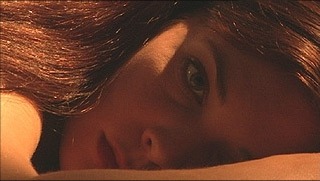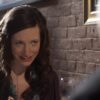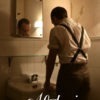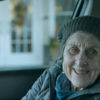
Last Tango in New Haven
Written by Justin Fielding | Posted by: Anonymous
When middle-aged Buddy joins his 18-year-old neighbor, Daphne, in a hotel room, they don’t bring much luggage: just his suitcase full of cash and her change of clothes. But they’ve got enough emotional baggage to break a porter’s back.
Two questions hover over "You Are Alone," Gorman Bechard’s achingly intimate indie feature. Why does Yale-accepted Daphne adopt the guise of "Britney," a no-boundaries prostitute in schoolgirl plaid? And which of Britney’s many talents could be worth so much to her lovelorn client?
Excepting an opening interlude with a kinky john and the occasional brief flashback, the film never leaves the hotel room. Thus, it rests heavily on its two stars, and they don’t disappoint.
Richard Brundage is convincing as Buddy, a wounded everyman in the William H. Macy mold. As the sexually candid Daphne/Britney, Jessica Bohl is arresting, and she already has two Best Actress awards to show for it — from the Brooklyn International Film Festival and from Indiefest Chicago, where the movie also won the Vision (Best of Fest) Award and Best Screenplay.
"You Are Alone," shot for $150,000 on Digital Video, is a selection in this month’s New England Film & Video Festival. Bechard spoke with NewEnglandFilm.com before heading from his Connecticut home to the Sidewalk Moving Picture Festival in Birmingham, Alabama.
Justin Fielding: How did "You Are Alone" get started?
Gorman Bechard: I had a horrible experience in L.A. doing a $3 million film ("The Kiss"), and I was fed up with the process. The problem was basically a producer who felt he should be directing the film, and since he was bankrolling it — and since it starred his wife — I was fucked.
After "The Kiss," I needed to either prove I could do this, or just get it out of my system and stick with books. "You Are Alone" was the outcome, which hopefully proved I could.
I found a great producer, Frank Loftus, who promised my vision would always come first. I wanted to raise the money, so I’d have complete freedom.
I knew I needed a script that was easy to film: two people in a room, talking. I got the idea from research for my last novel, "Ninth Square." What if a man was at a bachelor party and saw his neighbor’s 18-year-old daughter as the stripper entertainment? But as I started writing, it became much deeper than that. The film is much more about loneliness than it is about sex.
JF: Which came first for you, novel-writing or filmmaking?
Bechard: I started making low-budget B-movies in the 1980s ("Psychos in Love"), then got sick of working with people like Charlie Band, so I decided to just write. I did my first novel, "The Second Greatest Story Ever Told," which will be my next film.
Between books and scripts, I was optioned 26 times before "The Kiss," but nothing was ever made. I thought "The Kiss" would be it! Finally! Was I fucking wrong! But I learned a lot. Met a lot of good crew people, got to have beers with Eliza Dushku. But after all those options, I decided I was sick of nothing ever getting made.
So, I made the short "The Pretty Girl" (www.theprettygirl.com), based on one of my short stories. That got a lot of attention, which led to "The Kiss."
JF: How would you compare novel-writing with filmmaking?
Bechard: Writing a novel is like making a film, but you do it alone, which oftentimes is a nice thing. The editing process is most like writing a novel, and it’s also my favorite part of filmmaking — putting together all the elements. You do that when writing a book, or at least I do. Write the first draft, then pound it into submission. There’s a better story in there, you just have to find it.
JF: Is there a Gorman Bechard style or subject matter?
Bechard: I guess dark, sexual. People either seem to love my work, or detest it. There’s no in-between, and I think that’s a good thing. I’m interested in people’s dark side… who you fantasize about when you’re having sex with your partner. People don’t admit those things, we’re all so frightened of our sexuality. It’s sad, really.
JF: While you were writing the script, were you also building up the cast and production team?
Bechard: I wrote the script in two weeks, then started putting everything together. The first draft was done in December, 2003. We cast Jessica in March, Richard in August, and we were filming in September.
All through that, I reworked the script, nine drafts. Jessie would come in and ad lib — in uniform — for seven months. She helped bring that character to life, really made it hers. That’s why she got the additional-dialogue credit.
Went to everyone I knew, everyone’s doctor, lawyer. When we hit the 50 percent mark, we moved forward — we had enough to get the film in the can. I kept raising funds right through post, but it was easier then, because the film was complete.
JF: One of the hardest things for indie filmmakers is good sound.
Bechard: The biggest problem was street sounds, especially when we shot toward the window. Also, one person not wearing enough clothes for a lav.
JF: I hadn’t considered that problem.
Bechard: Yeah, where on Jessie do you hide the transmitter? It’d be a fun problem to figure out.
JF: The intimacy of the subject matter… how did that affect the way you ran the set?
Bechard: Jessie’s been modeling since she was 14, so she’s very comfortable. We just kept our eyes open for any problems, but there never were any in that regard.
JF: Is it awkward for you to explore such frank themes?
Bechard: I’ve always been really blunt when talking about sex. I have no problem asking women the most intimate details of their life, and I almost always get frank answers. When writing "Ninth Square," I began calling people who ran escort agencies, as if they’d talk to me. Most did, and then they let me talk to the escorts themselves. All of the stories she tells in the film are true.
JF: Richard Brundage is very good. Understandably there’s a lot of attention on Jessie’s performance and screen presence, but can you comment on Richard?
Bechard: Richard is very much like Buddy, but really intense — he gave a great performance. When we cast him, I was worried he might overpower Jessie. But then she so turned it on when the cameras rolled. I’m very proud of both performances.
JF: Did you do much previewing before the final cut?
Bechard: No, I go with my gut. It’s my story, ultimately, I have to feel and know something is working or not. I don’t believe in filmmaking by committee.
JF: Who and what inspires you?
Bechard: My immediate response is always: the Replacements. I truly believe all art begins and ends with them. Would there really be the Rolling Stones if it weren’t for Paul Westerberg and company? I think not! It comes down a lot to music for me, over most everything.
Favorite films: "The Seventh Seal," "8 1/2," "Manhattan," "The Third Man," "Carnival of Souls," "Psycho," and Charlie Chaplin. I like directors who take risks. People who aren’t afraid to show real emotions, instead of pulling out the old Hollywood happy ending. There is no happy ending. We all die.
Also, I tend to love films wherein one element is truly brilliant. "The Constant Gardner" has the most amazing cinematography I’ve seen in years. "Amelie" was that way for me, on many different levels. I’ve watched it for the cinematography, then again for her performance, then for the set design. Gorgeous!
JF: Why did you call the movie "You Are Alone"?
Bechard: I didn’t have a title, then I remembered the Crooked Fingers song Eric Bachmann wrote for "The Kiss," which the producer cut. I had my title and my theme song.
JF: How did you select the other songs?
Bechard: Slowly, carefully. There’s one scene where I literally tried over a thousand songs until one just… fit. Music should enhance the scene, but never overpower it. I love when I play this dark, depressing tune, "Pain and Sorrow," over the foursome sex scene. It could have been very hot, and suddenly you hear the lyrics, and realize what’s really going on in Daphne’s head.
JF: What are your thoughts on the aesthetic tradeoffs of shooting in Digital Video instead of film? Also, I see you’re planning to shoot your next feature in HD.
Bechard: The trade-off would be the other way around in my eyes. Why shoot on film and limit yourself to three takes, when you can get 18 takes with two cameras running? You can never have too much footage when you get to the editing room. HD is just the next step up. Unless I had an extra half-million to piss away on film and processing, HD is the way to go.
JF: The movie has done great at festivals.
Bechard: It makes me feel I can do it after all. I love festivals… movies and more movies, and when they’re run well, there’s nothing better. After Brooklyn, when Jess won Best Actress, I sort of figured that would be our award. We won it again in Chicago, and I was very pleased. But then we got best script, then best of fest — I was floored.
JF: How do you feel about the state of moviemaking today?
Bechard: I don’t think it’s changed. Video has replaced 16mm in the indie world, but you still have hacks making it, and talented filmmakers on the fringe. A few get through, and then usually sell their soul. I wonder if today’s big indie filmmakers have more than one great feature in them. Most of the times it seems not. Who’s the next John Sayles?
JF: Do you have any advice for your fellow indie filmmakers?
Bechard: I don’t really believe in film school. Take the tuition money and make your first feature. You’ll learn 10 times more, and have a film to show for it. "The Kiss" was a debacle, but it was the best film school ever.
Make sure you can communicate with your DP on a film level. If you say "I want ‘Persona,’" and he hasn’t a clue, there’ll be problems.
One of the biggest mistakes is casting. Find real actors, and make sure they fit the part. One wrong line reading by your mom can destroy your film.
Laziness runs rampant in this business. If you want to make a movie, make the freakin’ movie, and stop talking about it. Same for writing. Skip the nap today, write!
Get the take you need, at any cost. Who cares if the grip wants to go home? Forget about making friends. Because in the long run, you won’t know any of these people in six months, and you’ll be stuck with a film that sucks because you were worried about hurting someone’s feelings. You can make friends at the festival when you’re winning awards.
Yeah, okay. I’m a bastard to work for. But I’ll take the title of "bastard" any day, as long as the end product comes out like "You Are Alone."
For more information about the film, visit www.youarealone.com. 'You Are Alone' will screen at The New England Film & Video Festival, which runs October 6th-Oct. 10th, 2005 at The Coolidge Corner Theatre in Brookline, MA. For more information on the festival, visit www.befva.org.











